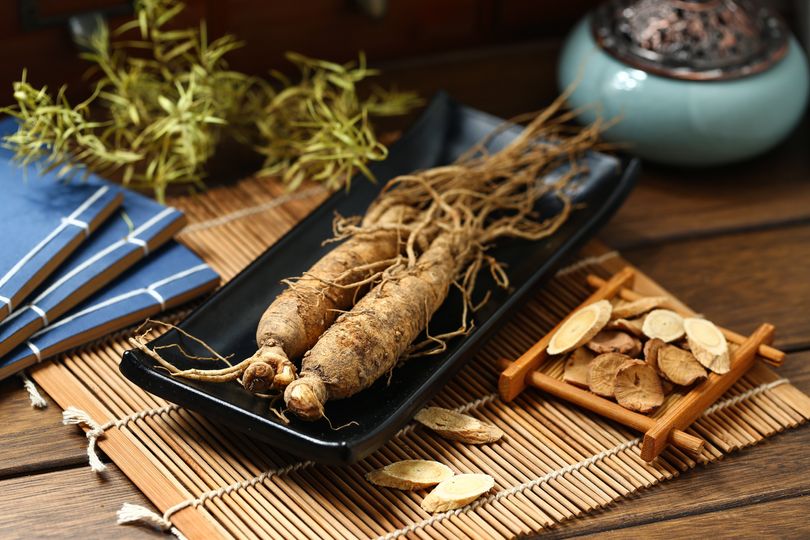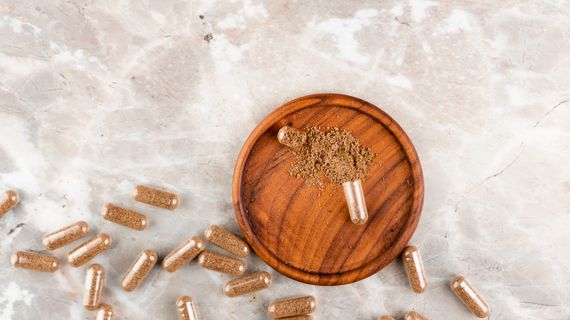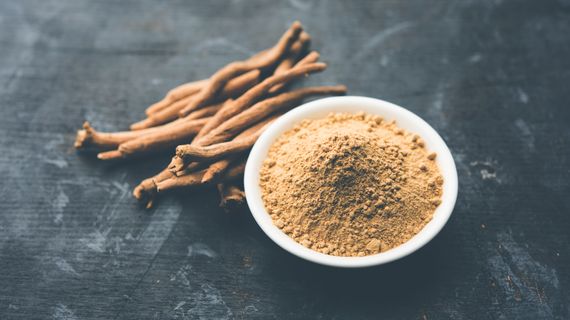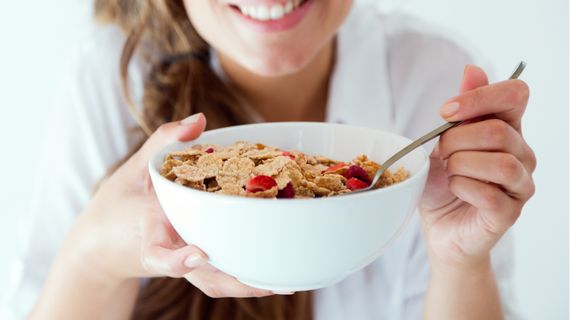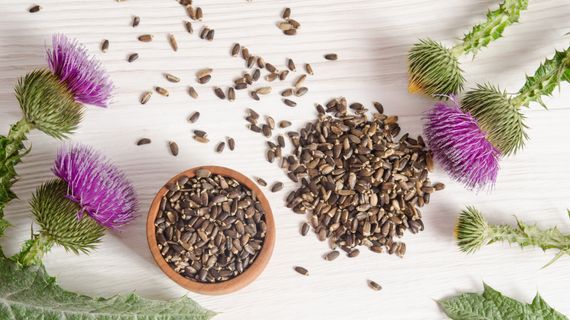- Korean ginseng has been used as a medicinal plant for more than 2000 years.
- The active substances are ginsenosides, which have a beneficial effect on the brain and immune function.
- A suitable form of administration is an extract of the root or its leaves.
Korean ginseng is one of the most popular medicinal plants in traditional Eastern medicine, where it has been used for more than 2000 years. It is superior in active ingredients to other ginseng species, which contain a lower spectrum of active ingredients and a much smaller proportion. What are the effects of Korean ginseng on the human body, and how can it be used properly?
Korean ginseng is the king among all ginseng species
The first mention of Korean ginseng comes from the Chinese text Shennong Ben Cao Jing, a collection of medicinal plants dating back to the 3rd century BC. Korean ginseng is described here as the 'king of plants', and its use is recommended for a variety of health issues.
Korean ginseng is also sometimes called 'true ginseng', with the Latin name Panax Ginseng C.A. Meyer. However, it is not the only type of ginseng found in nature; among the better‑known ones, we can mention, for example:
- Panax japonicus - Japanese ginseng
- Panax quinquefolius - American ginseng
- Panax notoginseng - Chinese ginseng
All these plants also belong to the Panax genus, but compared to Korean ginseng, they have a lower proportion of active substances (ginsenosides). A special case is the Siberian ginseng (Eleutherococcus senticosus), which does not belong to the Panax genus and is a completely different plant in terms of active substances.
Active substances of Korean ginseng: 40 types of ginsenosides
Korean ginseng is characterised by its content of ginsenosides, which are saponins specific to plants of the genus Panax. In addition to the root, they are also found in the leaves, and in the case of Korean ginseng, approximately 40 have been described, the most of any ginseng species.
Ginsenosides are divided into two basic groups depending on their chemical structure:
- Protopanaxadiols: for example Ra1‑3, Rb1‑3, Rc, Rd or Rs1‑3.
- Protopanaxatriols: for example, Re, Rf, Rg1‑2
Different ginseng species differ in their representation of specific ginsenosides, therefore different species have different effects. Studies show that ginsenosides are partially metabolised by microorganisms in the gut microbiota, forming additional metabolites that are absorbed. For example, the resulting metabolite IH‑901, which is not found in ginseng itself, is formed by fermentation in the digestive tract and appears to be one of the active compounds responsible for the effects of ginseng.
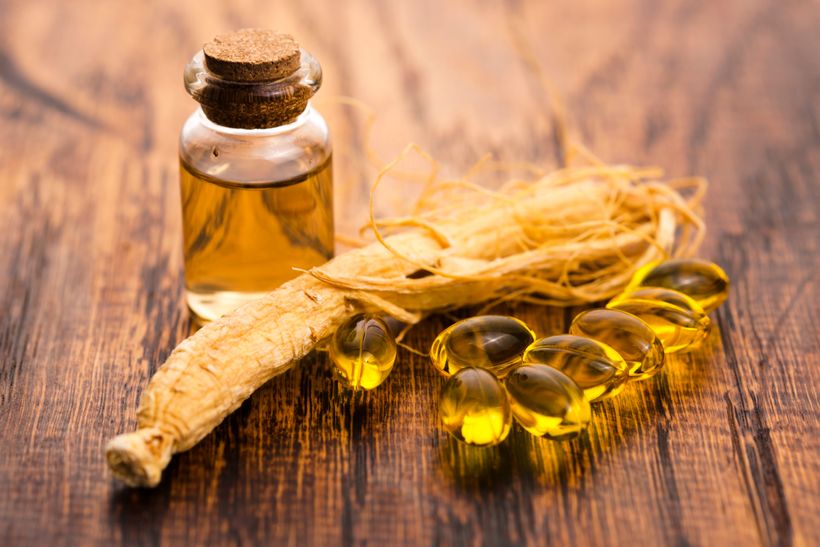
Korean ginseng and its benefits on immunity, brain and libido
Regular use of Korean ginseng is safe and without side effects. The studies most often address the following health benefits:
1. Positive effect on the immune system
Taking Korean ginseng has a positive effect on the human immune system, probably due to the stimulation of macrophage and T‑lymphocyte production. In addition, ginseng has antioxidant properties and may reduce the amount of free oxygen radicals.
A 1997 study of 223 participants found that taking an extract standardised to 4% ginsenoside content (G115) while receiving a flu vaccination reduced the incidence of colds by more than 60% compared to a placebo group. Experts, therefore, believe that the use of ginseng may act synergistically with vaccination.
2. Supporting cognitive function and memory
Korean ginseng is recommended for supporting brain function and reducing fatigue. A 2010 study that also tested Korean ginseng extract with 4% ginsenosides observed a reduction in mental fatigue, which was likely related to a reduction in blood sugar levels.
3. Support for libido and sexual function
Although taking Korean ginseng may increase testosterone levels, there does not appear to be a further increase in healthy individuals with normal testosterone levels. In contrast, individuals with reduced testosterone levels, reduced libido, or erectile dysfunction may experience improvements. A 2002 study tested the use of 2700 mg of Korean ginseng in people with erectile dysfunction and found significant improvement after eight weeks of use. In a 1996 study on men suffering from low sperm production, there was an improvement in the condition and an increase in testosterone levels after taking Korean ginseng extract.
How much Korean ginseng should you take?
Korean ginseng is most commonly associated with dietary supplements in our culture. It is most often found on its own or as part of a multivitamin supplement. In terms of regular use, a daily dose in the range of 200‑400 mg of Korean ginseng extract is most commonly recommended, which is also the dose range most often studied in scientific studies.
Korean Red Ginseng Extract - 10% Ginsenoside
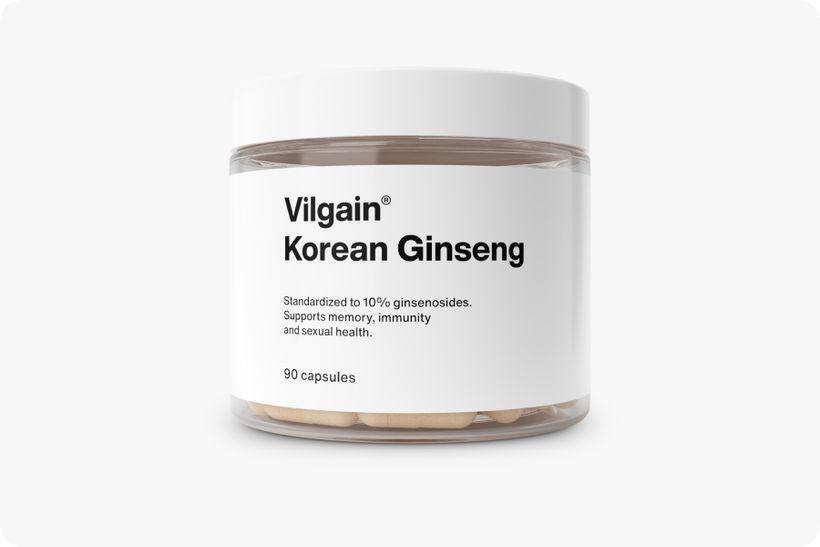
Bottom line
Korean ginseng is a medicinal plant that has been used in traditional Eastern medicine for over 2000 years. It is most commonly used to support immune function, but it also has beneficial effects on cognitive function or blood sugar levels. The active substances are ginsenosides, and there are approximately 40 of them in the leaves and roots of Korean ginseng, the most of any ginseng species.
Korean ginseng is most commonly taken in the form of dietary supplements, with 200‑400 mg of extract per day recommended as an effective dose, with extracts typically being 5‑10 times more concentrated as a source of active ingredients compared to the dried plant.


